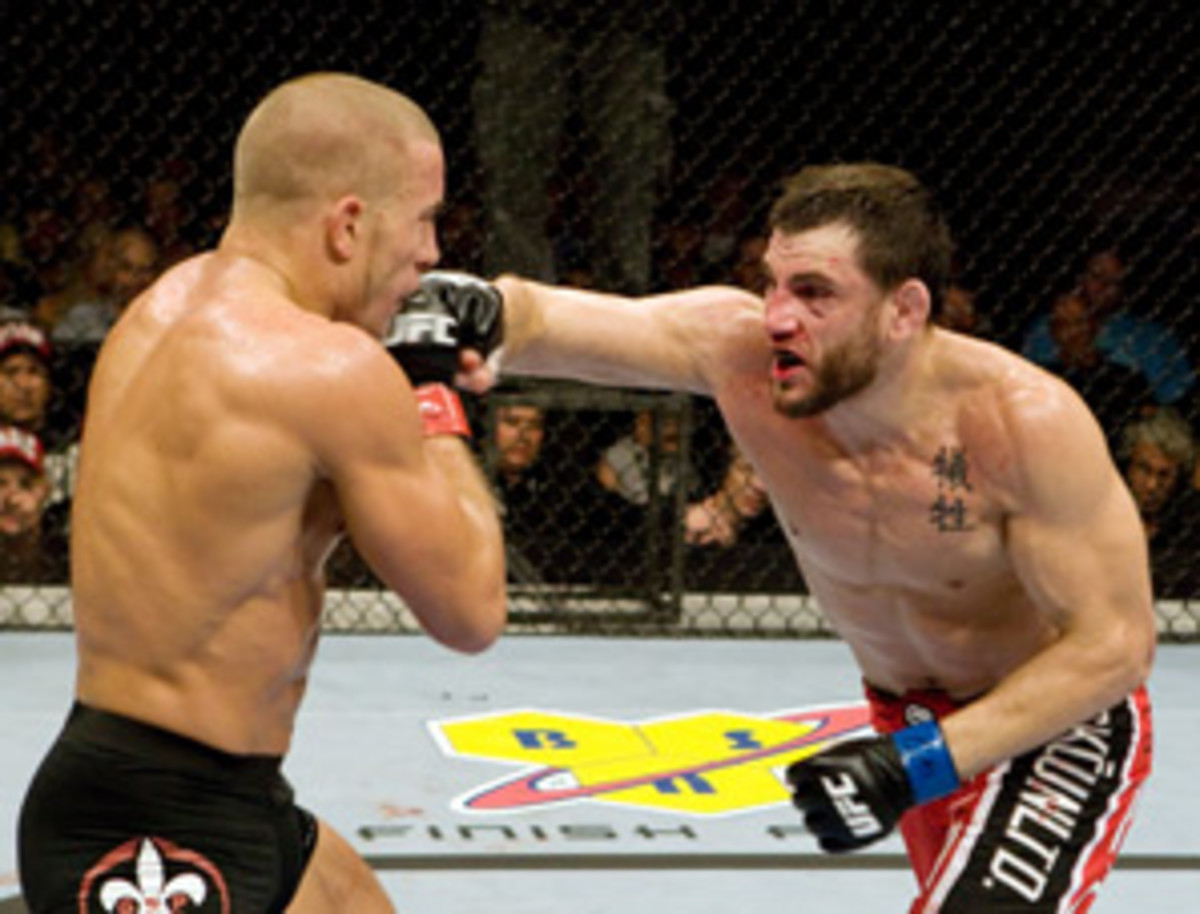In sport filled with trash talking, Fitch refuses to play along
There's a reason you won't hear Jon Fitch running his mouth before a fight: He's not into grudge matches or smack talk, just like he's not into drawing the spotlight for antics outside the cage.
"I don't think that's what this sport is about," he said. "I think if you put two top fighters against each other, that should sell itself."
So sayeth the purist. But just because it should be enough to put on quality fights between quality fighters, that doesn't mean it is. Just ask any successful promoter.
Fitch may be the kind of fighter who's gradually disappearing in MMA. He doesn't call attention to himself. He flatly refuses to play up the showbiz. He calls himself a martial artist -- and he means it -- but while guys like him play it straight, there are many other fighters willing to drum up a rivalry if it gets them a big fight on a pay-per-view card. They know, as does the UFC, that animosity sells.
Fitch knows it too, which makes his decision to avoid it altogether either a firm commitment to his ideals or a naively dumb business decision, depending on your perspective.
"It's just not me," he said. "I've chosen to take a humble path and not focus so much on money. Because it's true -- this sport pays people to be arrogant loudmouths. But it's just not in me. I respect the sport so much and think something so much better could evolve from this sport, like we could save the world with mixed martial arts. I think the attitudes some people have about this sport are selling it short."
There's a risk involved in this approach. Fitch has managed to avoid making a pro wrestling caricature of himself and his career, but at what point does respect for the sport cross over into just plain boring? Even when the UFC decided to match him up against Paulo Thiago, who beat Fitch's teammate JoshKoscheck his last time out, Fitch wouldn't go along with the revenge angle of the fight. You couldn't ask for a more natural storyline, at least until Fitch comes along to insist that it's just another fight.
Without question, Fitch delivers in the cage. He racked up eight straight UFC victories before eventually losing a decision to welterweight champ Georges St. Pierre.
But, despite being a consensus top-10 fighter, Fitch's bouts don't get the same promotional push as a good, old-fashioned feud, like the recent Dan Hardy-Marcus Davis fight at UFC 99. Fitch's last fight, against Akihiro Gono at UFC 94, was even relegated to the unaired preliminary portion of the card (though that might have been partly related to his falling out with the UFC over video game licensing rights).
So is there still a place in MMA for the Jon Fitchs out there? Can the guys who refuse to cut great promos but dominate opponents find a niche among the trash-talkers and walking gimmicks?
Well, yeah. As long as they keep winning fights, and Fitch has certainly done that. His only problem is that after getting a shot at the champion and coming up short, it might be hard to convince the UFC that a rematch would be a big-seller with fans.
"It all depends," Fitch said. "If they feel that it's a big fight and people are interested in it and it's going to make a lot of money, then they'll make it happen. But like with them bringing Vitor [Belfort] back for a title shot against Anderson [Silva], Vitor's a good fighter, but what's he done to deserve a title fight over [Nate] Marquardt? He's had a great career, but I would think Marquardt has done more to earn that fight. But it will make a lot of money, and probably more money than a rematch with Marquardt, so that's why they're doing it."
Even if Fitch may not be focused on what sells, plenty of others are. He doesn't have to play along to be a part of the game. He'd rather do it his way, and he can as long as he keeps winning fights.






